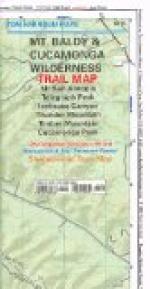“Do you know, boys,” said Herb, as he stooped and touched them, fingering each prong, “I’ve hunted moose in fall and winter since I was first introduced to a rifle. I’ve still-hunted ’em, called ’em, and followed ’em on snowshoes; but I never felt so thundering mean about killing an animal as I did about dropping this fellow. After his antics in the woods, when he tramped out onto the open patch where I was waiting under cover of those shrubs, I popped up and covered him with my Winchester. He just raised the hair on his back and looked at me, with a way wild animals sometimes have, as if I was a bad riddle. Like as not he’d never seen a human being before, and a moose’s eyes ain’t good for much as danger-signals. It’s only when he hears or smells mischief that he gets mad scared.
[Illustration: A FALLEN KING.]
“Well, I was out for meat, and bound to have it; so I pulled the trigger, and killed him with two shots. When the first bullet stung him he reared up, making a sharp noise like a wounded horse. Then he swung round as if to bolt; but the second went straight through his heart, and he fell where you see him now. I made sure that he was past kicking, and crept close to his head, thinking he was dead. He wasn’t quite gone, though; for he saw me, and laid back his ears, the last pitiful sign a moose makes when a hunter gets the better of him. I tell you it made me feel bad—just for a minute. I’ve got my moose for this season, and I’m sort o’ glad that the law won’t let me kill another unless it’s a life-saving matter.”
“How tall should you say this fellow was when alive?” asked Cyrus, stroking the creature’s shaggy hair, which was a rusty black in color.
“Oh! I guess he stood about as high as a good-sized pony. But I’ve shot moose which were taller than any horse. The biggest one I ever killed measured between seven and eight feet from the points of his hoofs to his shoulders, and the antlers were four feet and nine inches from tip to tip. He was a monster—a regular jing-swizzler! A mighty queer way I got him too! I’ll tell you all about it some other time.”
“Oh! you must,” answered Garst. “You’ll have to give us no end of moose-talk by the camp-fire of evenings. These English fellows want to learn all they can about the finest game on our continent before they go home.”
“Why, for evermore!” gasped Herb, in broad amazement. “Are you Britishers? And have you crossed the ocean to chase moose in Maine woods? My word! You’re a gamy pair of kids. We’ll have to try to accommodate you with a sight of a moose at any rate—a live one.”
Though they would gladly have appropriated the compliment, the “gamy kids” were obliged to acknowledge that hunting had not been in their thoughts when they traversed the Atlantic. But they avowed that they were the luckiest fellows alive, and that the American forest-land, with its camps and trails and wild offspring, was such a glorious old playground that they would never stop singing its praises until a swarm of boys from English soil had tasted the novel pleasures which they enjoyed.




